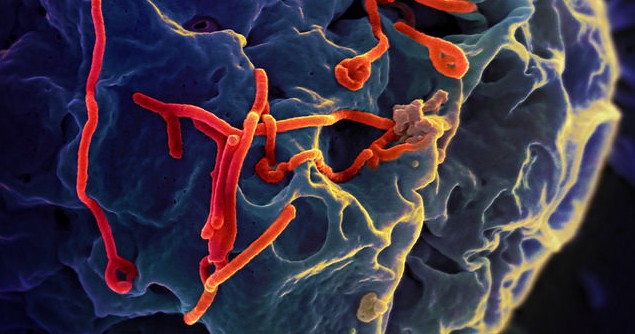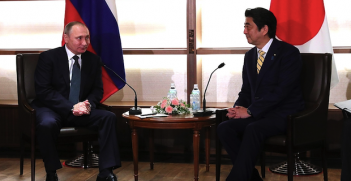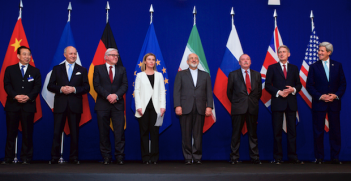Ebola Outbreak: Politics of Prevention and Engagement

Amid a catastrophic Ebola outbreak sweeping through West Africa, Sara Davies writes on the emerging security environment as well as suggestions to enhance global health security.
Much has been written about the response to Ebola by the affected governments, the international community, both donor states and UN specialised agencies, and the non-government organisations. Discussions have largely centred on the adequacy of the response to the situation and the question of whether the spread of this outbreak could have been prevented through concerted action by the affected states, particularly Guinea (first affected), then Sierra Leone and Liberia, as well as whether the World Health Organization (WHO) should have declared a Public Health Emergency of International Concern (PHEIC) earlier.
There has also been deeper analysis of the long-term implications of the apparent failure of these states, with long histories of political unrest, and their partners to adequately invest in public health systems as a long-term peacebuilding measure. The gendered nature of the Ebola outbreak has also been highlighted, in particular with regard to the relationship between health, gender equality and development in these states amongst which the most affected Liberia, Sierra Leone, Guinea, are also the most discriminatory according to the OECD Social Institutions and Gender Index.
Much of the discussion has focused on the security implications at three levels. First, individual security has been affected by forced quarantine and detention for non-compliance. Journalists have also been arrested for reporting outbreaks, whilst some governments, such as Sudan, have banned reporting altogether. Second, there are regional security implications where Ebola has forced peacekeepers to curtail their movements, with knock-on effects for other missions. Citing disease fears, states like Sudan and Somalia have refused the deployment of West African forces, and UN missions such as UNMIL, UNAMID and MONUSCO have had strict control measures imposed on their movements. In the short term, this reduces the pool of peacekeepers available for rotation and in the medium term limits the access of West African troops to UN reimbursement income, potentially creating budgetary problems for Sierra Leone and other recipient countries. This is happening in a situation where food shortages and the economic impact of the outbreak are already affecting the most vulnerable in affected countries. Third, at the global level, we have seen concerns expressed that Ebola has been neglected because of a combination of disease emergency fatigue in the post H1N1 ‘Swine Flu’ outbreak period and the global financial crisis, which has introduced financial austerity to the sector. It is telling that WHO’s emergency and outbreak response unit, which assists with detection and response to outbreak events while supporting state capacity through training public health officials on the processes of disease detection, response and reporting under the 2005 International Health Regulations (IHR), is now a much reduced team due to funding cuts.
The Ebola outbreak poses, I argue, three important questions about what we—as states and the international community (including NGOs and IOs)—want to do about disease prevention. The first thing is to understand that strengthening the health system, as argued recently by Lawrence Gostin, is the single most important step for future strengthening of global health security. This requires deeper engagement with the global health security framework that takes a preventative rather than reactive stance on containing disease outbreaks.
Second, the WHO Headquarters needs to work in an environment where it can test out the full limits of the International Health Regulations (IHR). Prior to Ebola, only two other occasions—H1N1 ‘Swine Flu’ in 2009 and spread of wild virus polio in May 2014—has seen the declaration of a PHEIC under IHR since it came into action in 2007. An increase in PHEIC declarations would require that the body bring foreign policy expertise into its work and such expertise may assist the organisation in navigating the implementation of what is a deeply political instrument—the International Health Regulations—which bears the potential to reduce the need for the delayed outbreak response we have seen with Ebola in West Africa. The declaration of a PHEIC need not herald the end of the world; rather it could indicate that there is a need to collect experts, as well as UN Agencies, UN Secretariat and NGOs on the ground, to achieve a proactive response to an outbreak. This would require careful management, in consultation with the WHO Executive Board, on the expected volume of PHEIC for the management of the WHO Secretariat. But, at present, what is more concerning is that the WHO Secretariat may be reluctant to take this path for fear of a political backlash even when it thinks that a PHEIC declaration might make a difference in outbreak prevention and response.
Third, we need to grapple with the calls for the Ebola outbreak to be handled by the UN Security Council (UNSC), whose ability to understand and respond to the Ebola outbreak is far from clear. The UNSC can demand that states affected by Ebola follow the WHO guidelines concerning containment and quarantine measures, and may even task peacekeeping missions with contributing to the effort. But this will bring complications, notably by (further) politicising the humanitarian mission. Moreover, it is not clear what additional capacity would be delivered by passing a Security Council resolution, given the ‘international rescue call’ already issued by Secretary-General Ban Ki-moon.
We need to think smarter about utilising the preventive tools that the WHO and others already possess that focus on assisting states to fulfil their responsibilities as well as reducing dependence on the Security Council. For example, over the longer term it means engaging the UN General Assembly to ensure health systems funding is prioritised and linked to a universal right to health care in the sustainable development goals after 2015. It also requires serious prioritisation of Global Health Cluster group, where WHO is the lead coordinator for 38 partners that work towards ‘effectiveness, predictability and accountability of humanitarian health action’. The inclusion of OCHA in the WHO Ebola response roadmap is vital (and overdue) given their expertise in coordinating emergency response with host governments in fragile settings. The Ebola outbreak is not just a story about state failure, but also about humanitarian actors failing to adequately coordinate and communicate. Moreover, there is a need to increase discussion about broader responsibilities across the UN system – such as the Human Rights Council – arguably the most appropriate vehicle for ensuring that states respond to outbreaks in a manner consistent with their human rights obligations.
What next? Global health security has been described as ‘keeping the world safe and secure from infectious disease threats’. This description is true but it indicates an episodic reaction, like the type we see today with Ebola where attention is only temporary . In reality, global health security is achieved only by the prevention of infectious disease spread, which is achieved through the normalisation of state response to outbreaks and building of capacity. The 2007 Oslo Ministerial Declaration on Global Health and Foreign Policy—agreed by Ministers of Foreign Affairs of Brazil, France, Indonesia, Norway, Senegal, South Africa, and Thailand—made the case that there was a need to highlight the interdependence between global health security and state capacity, good governance and long-term engagement. This is also my recommendation post Ebola. We need to prioritise political action that encourages cooperation to prevent outbreaks in ‘peace’ time and facilitates actors like WHO to act early without fear of reprimand. Let’s remember this for next time and be prepared.
Sara E. Davies is an ARC Future Fellow at the Australian Centre for Health Law Research, Queensland University of Technology and Program Director of Prevention of Mass Atrocities in the Asia-Pacific Centre for Responsibility to Protect, University of Queensland.





